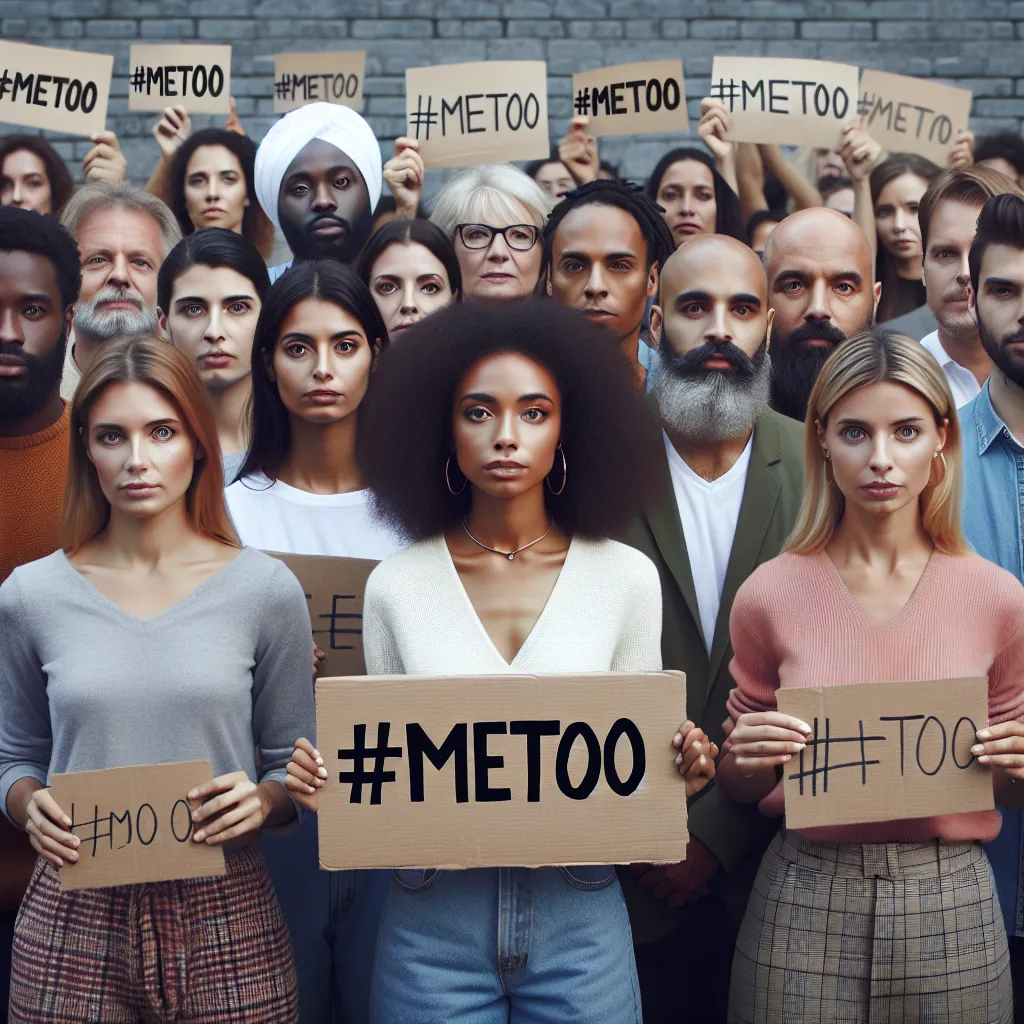In recent years, social media campaigns have become increasingly prevalent topics in IELTS Speaking tests. As an experienced IELTS examiner, I’ve noticed this trend gaining momentum, and I predict it will continue to be a popular subject in future exams. Let’s explore how to effectively answer questions about a social media campaign that caught your attention, aiming for the highest possible score.
Nội dung bài viết
- Part 1: Introduction and Interview
- Question: Do you use social media often?
- Part 2: Long Turn
- Describe a social media campaign that caught your attention
- Follow-up questions:
- Part 3: Two-way Discussion
- Examiner: How do you think social media campaigns differ from traditional advertising methods?
- Examiner: In your opinion, what makes a social media campaign successful?
- Key Vocabulary and Phrases for High Scores
- Examiner’s Advice
Part 1: Introduction and Interview
In this section, the examiner may ask general questions about social media and campaigns. Here’s an example question with a suggested answer:
Question: Do you use social media often?
Band 6-7 Answer:
“Yes, I use social media quite frequently. I check my Facebook and Instagram accounts daily to stay in touch with friends and family. It’s a convenient way to keep up with what’s happening in their lives.”
Band 8-9 Answer:
“Absolutely, I’m quite active on various social media platforms. I find myself regularly engaging with content on LinkedIn for professional networking, Instagram for visual inspiration, and Twitter for real-time news updates. Social media has become an integral part of my daily routine, allowing me to stay connected and informed in our fast-paced digital world.”
Part 2: Long Turn
Here’s a sample cue card related to describing a social media campaign:
Describe a social media campaign that caught your attention
You should say:
- What the campaign was about
- Where you saw it
- Why it caught your attention
- And explain how you think it impacted people
Band 6-7 Answer:
“I’d like to talk about the ALS Ice Bucket Challenge that went viral a few years ago. I first saw it on Facebook when some of my friends started posting videos of themselves pouring ice water over their heads. It caught my attention because it was quite unusual and seemed to be spreading quickly.
The campaign was aimed at raising awareness and funds for ALS, also known as Lou Gehrig’s disease. People would pour a bucket of ice water over themselves, post the video online, and then challenge others to do the same or donate to the ALS Association.
I think it had a significant impact because it was simple, fun, and easy to participate in. It got people talking about ALS and raised a lot of money for research. The campaign’s success showed how powerful social media can be in spreading a message and encouraging people to take action.”
Band 8-9 Answer:
“I’d like to discuss the groundbreaking #MeToo movement, which gained unprecedented traction on social media platforms worldwide. I first encountered this campaign on Twitter, where it rapidly evolved into a global phenomenon.
The campaign centered around raising awareness about sexual harassment and assault, particularly in the workplace. It caught my attention due to its profound impact and the sheer volume of people sharing their personal experiences. The use of a simple yet powerful hashtag facilitated a sense of unity and gave voice to countless individuals who had previously felt silenced.
I believe the campaign had a monumental impact on society. It sparked crucial conversations about power dynamics, consent, and accountability. The movement transcended social media, leading to tangible changes in various industries and prompting legislative reforms in some countries. It demonstrated the immense potential of social media as a tool for social change, allowing marginalized voices to be amplified on a global scale.
Moreover, the campaign fostered a sense of solidarity among survivors and raised public consciousness about the prevalence of sexual misconduct. It challenged societal norms and encouraged a cultural shift towards greater respect and equality. The ripple effects of this campaign continue to be felt, illustrating the long-lasting influence that a well-executed social media movement can have on shaping public discourse and instigating meaningful change.”
 MeToo social media campaign
MeToo social media campaign
Follow-up questions:
- How do you think the campaign could have been improved?
Band 6-7 Answer:
“I think the campaign could have been improved by providing more information about ALS and how donations were being used. They could have also partnered with more celebrities to reach a wider audience.”
Band 8-9 Answer:
“While the #MeToo campaign was undoubtedly impactful, there’s always room for improvement. One area that could have been enhanced was the inclusivity of the movement. It could have made a more concerted effort to amplify voices from marginalized communities, ensuring a truly intersectional approach. Additionally, the campaign could have provided more resources for support and action, such as links to counseling services or guidelines for workplace policy changes. Lastly, a more structured approach to channeling the momentum into tangible policy changes could have further solidified its long-term impact.”
- Do you think social media campaigns are effective in raising awareness about social issues?
Band 6-7 Answer:
“Yes, I think social media campaigns can be very effective. They can reach a lot of people quickly and make it easy for people to share information and get involved.”
Band 8-9 Answer:
“Social media campaigns have proven to be remarkably effective in raising awareness about social issues, primarily due to their ability to disseminate information rapidly and on a global scale. They leverage the interconnectedness of modern digital networks, allowing messages to spread virally and reach diverse audiences. Moreover, these campaigns often employ compelling visuals and personal stories, which can evoke strong emotional responses and drive engagement.
However, it’s crucial to note that the effectiveness of these campaigns isn’t guaranteed. Their success often depends on factors such as timing, relevance, and the resonance of the message with the target audience. Additionally, while social media campaigns excel at raising awareness, translating that awareness into concrete action can be challenging. The most impactful campaigns are those that combine online activism with offline initiatives, ensuring that the momentum generated online leads to tangible changes in the real world.”
Part 3: Two-way Discussion
Examiner: How do you think social media campaigns differ from traditional advertising methods?
Band 6-7 Answer:
“Social media campaigns are different because they’re more interactive. People can share and comment on them, which doesn’t happen with traditional ads. They’re also usually cheaper to run and can reach more people quickly. However, traditional advertising might be better for reaching older audiences who don’t use social media much.”
Band 8-9 Answer:
“Social media campaigns and traditional advertising methods differ fundamentally in several key aspects. Firstly, social media campaigns foster a two-way dialogue, allowing for real-time interaction between brands and consumers. This interactive nature enables immediate feedback and the ability to adapt strategies on the fly, a flexibility that traditional methods often lack.
Secondly, social media campaigns leverage user-generated content and peer-to-peer sharing, which can lend authenticity and credibility to the message. This organic spread of information contrasts with the more controlled, one-way communication typical of traditional advertising.
Moreover, social media campaigns often blur the lines between advertising and entertainment, integrating seamlessly into users’ daily content consumption. This integration can lead to higher engagement rates as the content feels less intrusive.
However, it’s important to note that social media campaigns can be more volatile and unpredictable. They’re subject to the rapidly changing dynamics of online platforms and can sometimes backfire if not carefully managed. Traditional advertising, while perhaps less dynamic, often offers more control over the message and its delivery.
Ultimately, the most effective marketing strategies often employ a synergistic approach, combining the strengths of both social media and traditional advertising methods to create comprehensive, multi-channel campaigns.”
Examiner: In your opinion, what makes a social media campaign successful?
Band 6-7 Answer:
“I think a successful social media campaign needs to be interesting and easy to share. It should have a clear message and maybe use hashtags to help it spread. Getting influencers or celebrities involved can also help make it more popular. The campaign should also encourage people to take some kind of action, not just share information.”
Band 8-9 Answer:
“The success of a social media campaign hinges on several critical factors. Primarily, it must resonate emotionally with its target audience. This emotional connection is often achieved through compelling storytelling or by addressing issues that people feel passionately about.
Secondly, timing and relevance play crucial roles. A campaign that taps into current trends or addresses timely issues is more likely to gain traction. The ALS Ice Bucket Challenge, for instance, capitalized on the summer season and the virality of challenge videos.
Another key element is ease of participation. Successful campaigns often have a low barrier to entry, allowing people to engage quickly and simply. This accessibility encourages widespread participation and sharing.
Authenticity is also paramount. Campaigns that feel genuine and align with the brand’s or organization’s values tend to perform better than those perceived as inauthentic or purely promotional.
Furthermore, successful campaigns often leverage the unique features of different social media platforms. For example, using Instagram’s visual focus for image-heavy campaigns or Twitter’s real-time nature for live events.
Lastly, the most impactful campaigns don’t just raise awareness but inspire action. Whether it’s donating to a cause, changing a behavior, or spreading a message, giving participants a clear next step can significantly amplify a campaign’s impact.
It’s worth noting that measuring success goes beyond just virality. While reach and engagement are important metrics, the true measure of success often lies in the campaign’s ability to achieve its intended goals, be it raising funds, changing perceptions, or driving behavioral change.”
Key Vocabulary and Phrases for High Scores
-
Groundbreaking /ˈɡraʊnd.breɪ.kɪŋ/ (adjective): Original and important; innovative.
Example: “The #MeToo movement was a groundbreaking social media campaign.” -
To gain traction (phrase): To start to have an effect or become successful.
Example: “The campaign quickly gained traction on Twitter.” -
To foster /ˈfɒs.tər/ (verb): To encourage the development of something.
Example: “Social media campaigns can foster a sense of community among participants.” -
To amplify /ˈæm.plɪ.faɪ/ (verb): To increase the strength of something, especially sound.
Example: “Social media has the power to amplify marginalized voices.” -
Tangible /ˈtæn.dʒə.bəl/ (adjective): Real and not imaginary; able to be shown, touched, or experienced.
Example: “The campaign led to tangible changes in company policies.” -
To resonate /ˈrez.ə.neɪt/ (verb): To have particular meaning or importance for someone.
Example: “The message of the campaign resonated with a wide audience.” -
Synergistic /ˌsɪn.əˈdʒɪs.tɪk/ (adjective): Working together in a creative, effective way.
Example: “A synergistic approach combining social media and traditional advertising can be highly effective.”
Examiner’s Advice
To achieve a high score in the IELTS Speaking test when discussing social media campaigns:
-
Use a range of vocabulary: Incorporate topic-specific terms and idiomatic expressions naturally in your responses.
-
Provide detailed answers: Elaborate on your points with examples and personal experiences.
-
Show critical thinking: Analyze the impacts and implications of social media campaigns, not just describe them.
-
Maintain fluency: Practice speaking on this topic to improve your ability to discuss it smoothly and confidently.
-
Demonstrate awareness: Stay informed about current social media trends and campaigns to provide relevant examples.
Remember, the key to success is not just knowing about social media campaigns, but being able to discuss them articulately and thoughtfully. Regular practice and staying updated on current events will help you achieve this goal.
For more insights on related topics, you might find these articles helpful:


